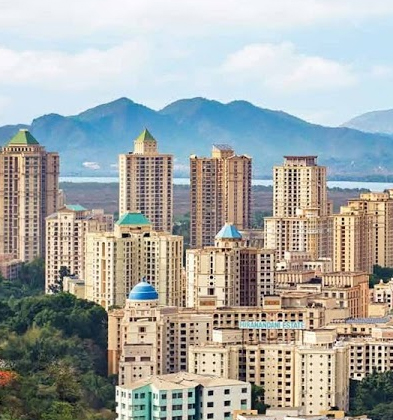Why is residential real estate one of the safest investment options in India?
June 20th, 2024
Listen to this News
In the evolving landscape of investment opportunities, residential real estate in India stands out as one of the most resilient and reliable choices for investors. Despite economic fluctuations and market uncertainties, the sector has demonstrated robust performance, offering stable returns and long-term value appreciation.
Following a spectacular performance in 2023, the housing market continues to thrive, driven by a shifting consumer preference towards homeownership over rental arrangements. As investors seek growth and stability, the Indian real estate market shines bright, setting new benchmarks and surpassing expectations.
2024 has been promising, and the overall outlook for Indian residential real estate appears increasingly promising. Amidst a dynamic investment landscape, the sector has established itself as a bedrock of stability and reliability. Current trends and indicators suggest that residential real estate in India will continue to be an asset class, outperforming other investment options and providing a secure haven for investors.
Residential real estate: A rock-solid investment
Amidst massive inconsistency in the world’s geopolitics scenario, India's residential real estate sector has demonstrated exceptional stability. However, India's resilient economy and consistent demand have created a positive outlook for industry stakeholders, positioning the country at the forefront of growth in the sector.
The residential real estate market has been recovering in 2023, significantly contributing to India’s growth story. The industry is strong, with an expected 15-25% increase in new property launches in 2024. Additionally, sales are projected to additionally improve by 10-15%, which is essential for the continued progress of the real estate market. In 2024, residential properties in Mumbai are expected to increase in value by 5-8 per cent, with a substantial increase in the demand for luxury and mid-segment properties.
Government initiatives and policy support
The Indian government has introduced several initiatives to boost the real estate sector, particularly housing. Schemes like the Pradhan Mantri Awas Yojana (PMAY) have given a great impetus to every Indian looking to build or buy his first home. In its first cabinet meeting, the newly formed government decided to assist three crore additional rural and urban households with house construction, addressing the rising housing needs of the increasing number of eligible families. Under the PMAY, a total of 4.21 crore houses have been completed for eligible low-income families over the past 10 years.
A promising outlook
The Indian real estate sector attracted investments totalling USD 1.1 billion in Q1 2024, with the residential industry leading the way by securing nearly USD 693 million. This marks the residential sector as the standout performer among various asset classes. The sector's impressive performance is driven by robust housing demand and a resurgent supply over the past few quarters. Investors are capitalising on this momentum, leading to the residential segment accounting for over 63% of the total real estate investments in Q1 2024.
Infrastructure growth creating new micro markets
In a pivotal move towards economic transformation, the Indian government has intensified its focus on infrastructure development, allocating an impressive ₹13.7 lakh crore, equivalent to 4.5% of GDP, for capital expenditure. This unwavering commitment underscores the government's dedication to building a robust foundation for growth and positions India on the path to becoming a $5 trillion economy.
A significant portion of this investment is directed towards railways, emphasising strategic intermodal connectivity, including roads, rails, ports, and airports. The primary goal is to enhance transportation and logistics efficiency, reduce costs, and bolster India's global competitiveness.
The synergistic relationship between infrastructure investment and real estate development is well-established. Improvements in roads, public transportation, and amenities transform previously inaccessible areas into attractive prospects for real estate investment. This infrastructure push not only facilitates immediate economic benefits but also sets the stage for sustainable long-term growth, significantly impacting the real estate sector by opening new avenues for development and investment.
For example, the recently launched Atal Setu in Mumbai has created multiple new markets in and around Navi Mumbai, which is great news for the MMR’s real estate industry.
Conclusion
In absolute terms, the investment inflow into the residential market in Q1 2024 is double the quarterly average observed over the past eight quarters, highlighting a significant surge in investor confidence and interest in the residential real estate market. This trend underscores the sector's critical role in driving overall real estate investment in India. This upswing is supported by a stable economy, favourable interest rates, and a shift in consumer perception, where property ownership is increasingly viewed as a reliable financial safety net.
As the market is poised to grow consistently in 2024, residential properties are witnessing a significant surge in demand. India's property markets are exhibiting robust growth, characterised by a substantial increase in new launches and a notable rise in sales.
Source: livemint.com
Read all Thane Real Estate Latest News
To Know About Thane Real Estate Development Contact Us at (+91) 9833458323

